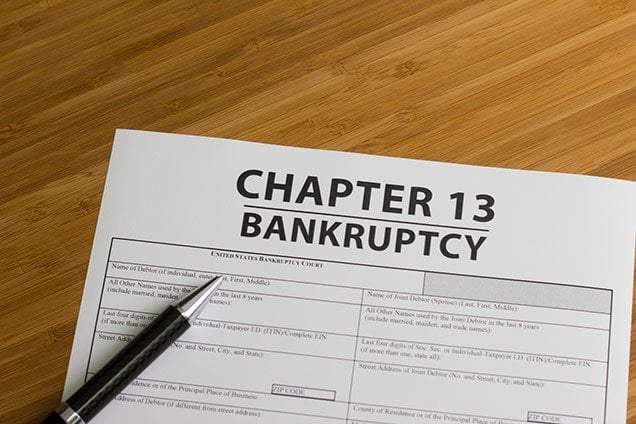Chapter 7 bankruptcy is the branch of bankruptcy people often choose because it offers debt forgiveness; however, this is not the only branch of bankruptcy available. The other branch is Chapter 13, and there are times when Chapter 13 might offer more benefits to people than filing for Chapter 7. Here are some of the reasons you might want to choose Chapter 13.
01.15.2018
Reasons to File for Chapter 13 Even If You Qualify for Chapter 7

Chapter 7 bankruptcy is the branch of bankruptcy people often choose because it offers debt forgiveness; however, this is not the only branch of bankruptcy available. The other branch is Chapter 13, and there are times when Chapter 13 might offer more benefits to people than filing for Chapter 7. Here are some of the reasons you might want to choose Chapter 13.
It Offers a Way to Save Your Home and Car
One of the primary reasons people choose Chapter 13 instead of Chapter 7 is to save their homes or cars. Chapter 7 bankruptcy offers some advantages to filers in certain ways, but it will never completely stop a foreclosure or repossession. Chapter 13 does, though.
Filing for Chapter 13 requires that you repay most of your debts or even all of them, but it does so by giving you a fair repayment plan to work with. Through this repayment plan, you can include all past-due amounts you owe to your mortgage lender or car lender, and the goal is to help you catch up on the bills you have.
When you file for Chapter 13, the court will inform your mortgage lender, car lender, and other creditors to cease all collection efforts for the debts you owe. The courts call this an automatic stay, and it stays in effect throughout your entire case. Through the automatic stay you receive, you will no longer face foreclosure or repossession of your car and home.
In Chapter 7, you will also receive the automatic stay; however, it ends when the court closes the case, and this usually takes around four to six months. During this four to six month period, your creditors must leave you alone; however, they can legally begin collection efforts when this period ends.
It Gives You Time to Repay Debts
The primary benefit of Chapter 7 is that it offers debt forgiveness, meaning that the bankruptcy erases your debts. The problem with this is that Chapter 7 only offers debt forgiveness for qualifying debts, and past-due mortgage arrears do not fall into the category of qualifying debts.
Child support, alimony, student loans, and tax debts are also debts that do not fall into the category of qualifying debts. Credit card debts do fall into the category of qualifying debts, as do medical bills and personal loan debts.
If you have debts that do not qualify for debt forgiveness, you will still have these debts if you file for Chapter 7. There is no repayment plan with Chapter 7, and you will have to keep paying these debts until you pay them off.
A nice feature of Chapter 13 is that it does offer time to you to repay the debts you owe, and this is what the repayment plan is for. The court will give you up to five years to pay off your debts. At the end of this time-frame, the court may forgive some of the balances on the debts you owe, which means you will not have to pay 100% of your debts.
The repayment plan the court offers you will give you the ability to keep all your assets and slowly pay off all your debts. When you finish the plan completely, you should be in great financial shape, especially if you compare your financial condition to what it was prior to filing for Chapter 13.
Before you decide to use bankruptcy as a way to obtain financial improvements, talk to a lawyer. You can contact The Law Office of Travis Van Winkle LLC to schedule a consultation visit with an experienced bankruptcy attorney if you would like more information.

